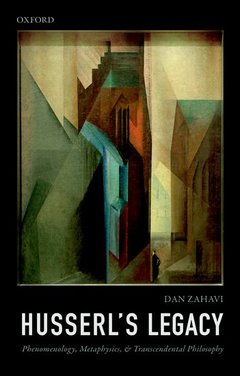Description
Husserl's Legacy
Phenomenology, Metaphysics, and Transcendental Philosophy
Author: Zahavi Dan
Language: English
Husserl's Legacy
Publication date: 11-2019
256 p. · 14x21.5 cm · Paperback
Publication date: 11-2019
256 p. · 14x21.5 cm · Paperback
Husserl's Legacy
Publication date: 12-2017
256 p. · 14.3x22 cm · Hardback
Publication date: 12-2017
256 p. · 14.3x22 cm · Hardback
Description
/li>Biography
/li>
Dan Zahavi offers an in-depth and up-to-date analysis of central and contested aspects of the philosophy of Edmund Husserl, the founder of phenomenology. What is ultimately at stake in Husserl's phenomenological analyses? Are they primarily to be understood as investigations of consciousness or are they equally about the world? What is distinctive about phenomenological transcendental philosophy, and what kind of metaphysical import, if any, might it have? Husserl's Legacy offers an interpretation of the more overarching aims and ambitions of Husserlian phenomenology and engages with some of the most contested and debated questions in phenomenology. Central to its interpretative efforts is the attempt to understand Husserl's transcendental idealism. Zahavi argues that Husserl was not a sophisticated introspectionist, not a phenomenalist, nor an internalist, not a quietist when it comes to metaphysical issues, and not opposed to all forms of naturalism. Husserl's Legacy argues that Husserl's phenomenology is as much about the world as it is about consciousness, and that a proper grasp of Husserl's transcendental idealism reveals the fundamental importance of facticity and intersubjectivity.
Dan Zahavi is Professor of Philosophy and Director of the Center for Subjectivity Research at the University of Copenhagen. He is author and editor of more than 25 volumes including Husserl's Phenomenology (Stanford 2003), Subjectivity and Selfhood (MIT Press 2005), The Phenomenological Mind (with Shaun Gallagher, Routledge 2008/2012), and most recently Self and Other (OUP 2014). His work has been translated into more than 25 languages. He is co-editor in chief of the journal Phenomenology and the Cognitive Sciences, and recently edited The Oxford Handbook of Contemporary Phenomenology (OUP 2012).
© 2024 LAVOISIER S.A.S.
These books may interest you

The Husserlian Mind 250.90 €



